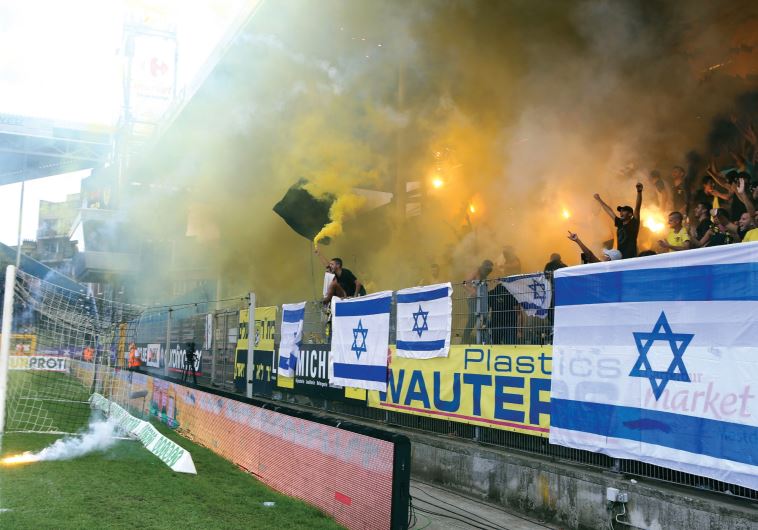Unsportsmanlike conduct
It is a source of shame that the capital’s most well-known club, Beitar Jerusalem, is notorious for its demonstrative hatred of Arabs.
 Jerusalem supporters from the La Familia fan group hold up a match against Charleroi in Belgium(photo credit: UDI ZITIAT)
Jerusalem supporters from the La Familia fan group hold up a match against Charleroi in Belgium(photo credit: UDI ZITIAT)